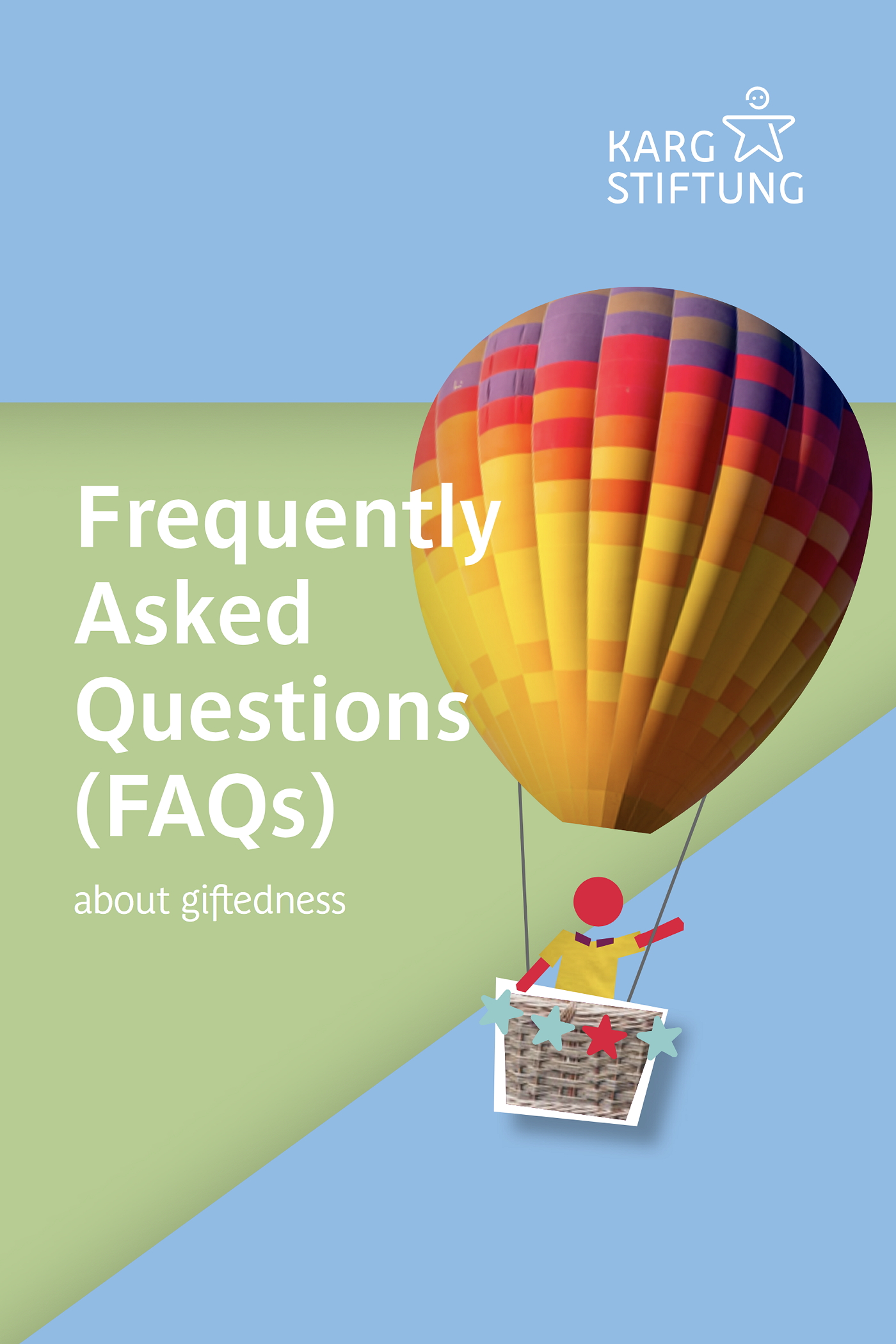Frequently Asked Questions (FAQs) about giftedness
What preconceptions do people have about gifted people?
The media often portrays gifted people in stereotypical ways, for example, as a shy person who is highly intelligent but unable to cope with the demands of everyday life or as an overachiever who not only effortlessly earns excellent grades but is also involved in the community and likeable. In most cases, these clichés do not correspond to reality. They do, however, influence the image others have of gifted people—creating a new reality, so to speak—and challenge the gifted to confront these stereotypes. The “stigma of giftedness” approach suggests that some gifted individuals are afraid of being conspicuous to others or of being ostracized because of their giftedness. This is especially true for gifted adolescents. As a response, they may exhibit various behaviors that are ultimately harmful to them. For example, they may attempt to conform to the stereotype; or they may blend in and hide their giftedness; or in the extreme case, they may also deny and reject their giftedness and actually badmouth gifted people.
Stereotypes and prejudices can also have an effect on the behavior of others toward the gifted. If teachers assume, for example, that a gifted child is more likely to be difficult in the classroom, this will be reflected in their reactions and behaviors toward that child. In turn, like a “self-fulfilling prophecy”, this can actually lead to the gifted child behaving in a difficult manner. It is therefore very important to shed light on false stereotypes and prejudices about gifted people—and not only about those held by other people, but also those held by the gifted people themselves. Apart from achievement-related characteristics, gifted individuals do not differ systematically from individuals who are not gifted. And just like their nongifted peers, gifted people are also quite diverse.

